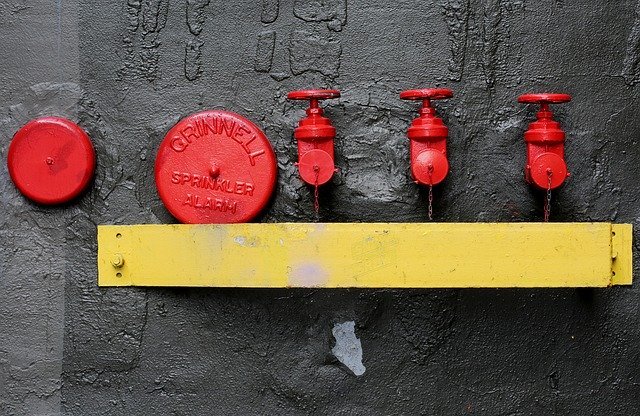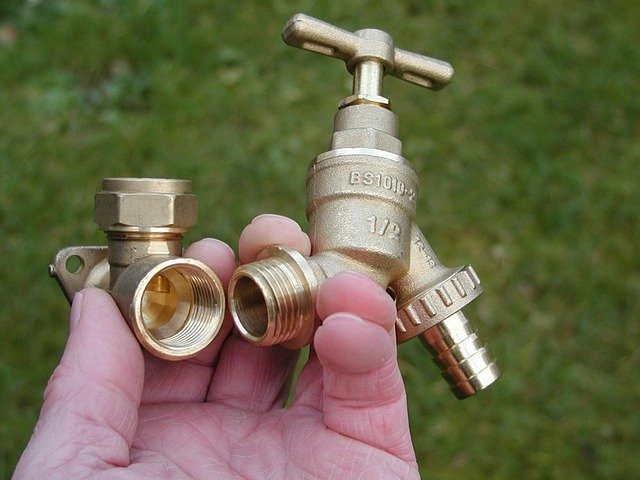
Water may be needed to live, but it can also be a nemesis to the frustrated homeowner dealing with plumbing problems. There aren’t many things more devastating to a home’s structure than a major plumbing problem.
To keep your pipes from getting frozen, always maintain a temperature in the house above freezing and make sure all pipes exposed to outside elements are insulated properly. Obviously, frozen pipes occur due to freezing environmental conditions. The best case scenario is that you can heat the pipes and the water will start flowing again. Frozen pipes can also burst, which can be very messy and expensive to repair.
To keep your pipes from freezing in the winter, maintain a constant temperature in your home above freezing, and be certain to adequately insulate those pipes that are out in the weather. Your pipes can freeze if the air around it is below 32 degrees. It could take time in order for the pipes to thaw so that you can have running water. However, they might burst, causing damage to your home and a hefty repair bill.
Get to know the tools and how they are used for the most success in plumbing. Research the project you are going to attempt online, and read the manuals that come with the tools before you use them. Make sure you plan before you try any kind of repair, as it can be costly to fix a mistake.
Knowing what tools and how to use them will make you much better at plumbing. Before attempting any repairs, you should have a plan; otherwise, or you may make a costly mistake.
If your toilet is clogged, the water level in the toilet is low, and a plunger is not doing the trick, you may be able to resolve the problem by pouring a bucket of warm water into the toilet from waist level or higher. The water needs to be at a low level again in order to repeat the process.
Check the floors in your bathroom for any give in order to be sure that there is no damage in the toilet to determine floor damage. You can wind up saving your money simply by noticing the problem as early on.
Never reach into your garbage disposal with bare hands, even if there is a serious problem with it. Even when they are turned off, disposals can be very dangerous. Search online for a troubleshooting manual for your disposal.
If you notice orange or pink stains in your bathroom fixtures, you have too much iron in your water. This is fixed by using water softener, which can be bought at a store, or have a company come out to your house and take care of it for you.
Cleaning your in-sink garbage disposal can extend its lifetime significantly. In order to keep it clean, you can use a mixture of dish soap, cherry pits and lemon rinds which will keep the disposal running smooth and smelling fresh.
You can prevent annoying odors and promote smooth operation by setting up a regular cleaning routine with lemon rinds, lemon peels, and cherry pits to get your garbage disposal clean and fresh and running well.
Check overflow holes to make sure there’s no clog. Overflow holes are one of those things which you forget about until you need them. Clean overflow holes as part of your annual maintenance, and any other time you are handling general plumbing repairs.
Schedule all your issues in one single visit. You might be tempted to call the plumber every time you need something fixed, but if you have problems repaired all at once, you can save up money for repairs. Most plumbers have an hourly fee that can be minimized if there is only one visit to your home.
It is important to always run cold water while using your garbage disposal. The blades on the unit will remain sharper and disposal will proceed with few glitches. If you use hot water instead of cold, it will turn any fat into liquid and cause the fat to clog your pipes when it later cools and solidifies.
Pour equal parts baking soda and vinegar down your bathtub drain every month. Plug up the drain and allow the chemical reaction takes place. Wait a while, and then pour boiling water down the drain. This procedure should clear pipes of accumulated hair and soap scum.
If you have unwanted water that drains in your dishwasher, it’s probably due to the kitchen sink’s hose being improperly installed. You must have the hose going uphill and then down to get rid of the water in the dishwater.
Some people think it’s alright to get away with the cheapest head for your shower in the store. The problem with this is that these models are not very sturdy and easily break.
In order to keep your plumbing bills as low as possible, keep in mind prevention is key. Clogs can be a major cause of plumbing problems. Drains can be clogged by hair. Use a drain cover to keep hair and other elements from going down your pipes. It’s a lot easier to take hair out of a screen than to pull it from a pipe.
Becoming educated on plumbing and preparing beforehand can help prevent future issues. The homeowner who learns a little bit about plumbing is more likely to make wise decisions and avoid dangerous plumbing situations. The owner who does research and prepares for a problem before it happens will more easily repair the problem quickly.
Fix issues with low water pressure by cleaning sediment buildup out of your faucet’s aerator. Take apart the faucet, and clean the aerator with vinegar and a small brush. Thoroughly rinse off the aerator, put it back together and place it back on the faucet. By removing any grit, grime and debris from the aerator, the water pressure should significantly increase.

